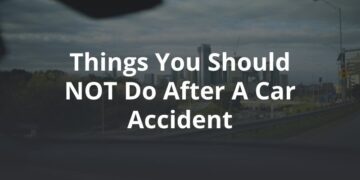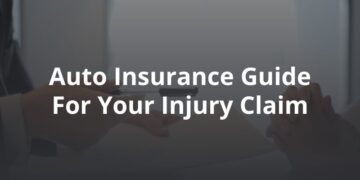Establishing liability is a key part of any accident case, since it determines which parties are responsible for the incident — and therefore who is responsible for paying for injuries. Unfortunately, determining liability is not as clear-cut as you might think. In some cases, both parties involved share some of the liability. In others, it may be unclear or difficult to prove exactly which actions contributed to the collision. And in many cases, insurance carriers will refuse or limit coverage even when liability seems obvious.
Determining liability becomes even more difficult in a collision with a large truck such as an 18-wheeler. In an accident between two private vehicles, typically there are only one or two insurance providers involved in a settlement. But when a collision involves a truck operated on behalf of a large commercial carrier or other business, that entity necessarily becomes involved in the case as well, as does their insurer.
That can complicate the process of assigning damages — even when the truck driver is clearly at fault. Theoretically, employers are responsible for the actions of their employees while on the job, according to a legal doctrine known as respondeat superior. That principle, which literally translates to “let the superior answer,” asserts that employers can be held liable for damages incurred by their employees if that individual’s actions are determined to be within the scope of their employment.
However, in practice, proving an employer’s legal responsibility to pay for damages can be very complicated and depends on several factors, including:
- The driver’s relationship to their employer
- What the driver was doing at the time of the accident
- The business and hiring practices of the commercial carrier
Below, we’ll examine each of these factors and how they may impact your 18-wheeler accident case.
What Is the Driver’s Employment Status?
Understanding a commercial driver’s relationship to their employer is a critical aspect of determining who is financially responsible for the accident. Some drivers are directly employed by the company they work for. In these cases, commercial carriers assume more control over vehicle operators and their behavior. They also typically own the 18-wheeler and other equipment the driver uses.
It is much more common, however, for a driver to operate as an independent contractor. That means they are classified as an “owner-operator.” They may own their own cabs and set their own hours. These drivers are also responsible for many expenses that a business owner often assumes in a direct-employee relationship, such as health insurance and taxes. They may even be responsible for furnishing their own commercial trucking liability insurance.
Worker status is hotly contested in many 18-wheeler accidents. Employers may claim that because the driver was operating as an independent contractor, they are not responsible for the driver’s actions on the job — especially if they own their own vehicle, pay for their own gas, and operate on a per-route basis. The employer’s insurance provider may claim that damages should be paid out of the driver’s individual policy. Because of this, many victims choose to speak with an 18-wheeler accident lawyer before they begin the process of claiming damages.
What Was the Driver Doing when the Accident Happened?
In order to successfully invoke the doctrine of respondeat superior, you must be able to prove that the driver’s actions were within the scope of their employment — that is, that they were performing official work duties when the accident happened.
For example, if a driver was on their way to visit a friend when the accident happened, the principle of respondeat superior may not apply, even if they were using a company-owned vehicle to make the trip.
In some cases, however, determining if a driver’s intentions fall outside the scope of their employment can be more difficult: for instance, a driver who caused an accident while leaving a restaurant. Depending on the circumstances, an employer could argue that the driver was taking care of a personal matter when the collision occurred.
Again, understanding these nuances often requires the advice of a professional 18-wheeler accident lawyer.
Was the Commercial Carrier Adhering to State and Federal Regulations?
One last factor to consider in an 18-wheeler accident case is whether the driver’s employer upheld federal and state regulations that apply to them as a commercial carrier. For example, commercial carriers are required to:
- Provide employees with proper training
- Complete necessary repairs and maintenance on company-owned vehicles
- Abide by rules dictating breaks and rest periods for drivers — and not encourage drivers to break them
- Ensure that drivers meet the proper commercial driver licensing requirements
When employers fail to abide by these regulations — and that negligence contributes to an accident — it can often be successfully argued that the employer is responsible for damages. For example, a commercial carrier that openly encourages drivers to either drive for long hours without breaks or falsify break records (a fairly common occurrence), that company can and should be held liable for their negligence.
Untangling the circumstances of an accident and the relationships between drivers, their employers, and various insurance policies takes experience and a thorough understanding of the law. Our expert 18-wheeler accident lawyers are here to help. We’ll not only guide you through the process of claiming damages; we’ll also advocate for your rights against large commercial carriers. Contact us today for your free case evaluation.





